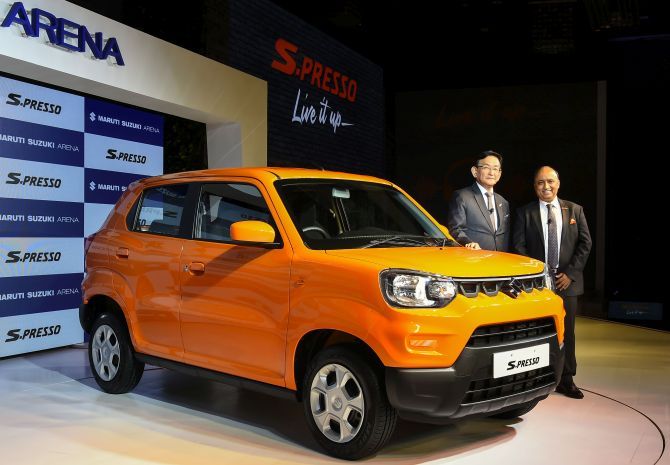The figures are encouraging for the auto industry amid apprehension that due to higher cost and lack of fuel availability, cars with stricter emission standards may not be popular in initial stages. Automakers had even cited this confusion as one of the reasons for dwindling car sales in India, reports Arindam Majumder.

India’s largest carmaker Maruti Suzuki has sold more than 200,000 BSVI emission compliant vehicles in just six months of launching its first such car in the country. The carmaker has up to 70 per cent vehicles in its fleet as BSVI compliant.
The figures are encouraging for the auto industry amid apprehension that due to higher cost and lack of fuel availability, cars with stricter emission standards may not be popular in initial stages. Automakers had even cited this confusion as one of the reasons for dwindling car sales in India.
Maruti Suzuki witnessed a 26.7 per cent fall in its domestic sales in September. It could sell 112,500 units in September against 153,550 units last year same time.
‘BS’ in BSVI stands for Bharat Stage, which signifies the emission regulation standards set by Indian regulatory bodies. The ‘VI’ is a roman numeric representation for six (6). The higher the number gets, the stricter the Bharat Stage emission norms get, which eventually means it becomes trickier (and costlier) for automakers to meet them.
The Supreme Court has ruled that no BSIV vehicle shall be sold across the country with effect from April 1, 2020.
“Offering eight BSVI-compliant petrol vehicles in the mass segment much ahead of timeline has helped us reach this technology to a larger customer base,” said Kenichi Ayukawa, managing director and chief executive of Maruti Suzuki.
Maruti has been launching BSVI versions of its most-popular models since April 2019. As of now, the automaker has eight products in its portfolio that adhere to the new standards.
Maruti’s first product to get the BSVI compliant engine was the popular premium hatchback Baleno, followed by an upgraded version of Alto, India’s most popular hatchback.
The company’s two new products -- XL 6 and S-Presso -- have also been launched with the upgraded petrol engine.
“The fact that we decided to launch BSVI vehicles much ahead of the government’s deadline has proved to be successful. Acceptance of BSVI vehicles has increased among the customer,” said Shashank Srivastava, executive director (sales and marketing) at Maruti Suzuki.
Among the primary fears of the industry was that customers will shy away from buying a BSVI-compliant vehicle as there will be confusion over the availability of competent fuel.
“Yes, naturally there were a lot of confusion among our customers on the availability of fuel for the BS VI vehicles, but we prepared our dealerships to address that concern,” said Srivastava.
According to him, any petrol variant of BSVI vehicle will be competent to function on BS IV fuel. The BSVI compliant petrol vehicles will lead to a substantial reduction of nearly 25 per cent in nitrogen oxide emissions. Currently, availability of BSVI fuel is a challenge as most of the fuel retailers are not ready with the fuel.












 © 2025
© 2025